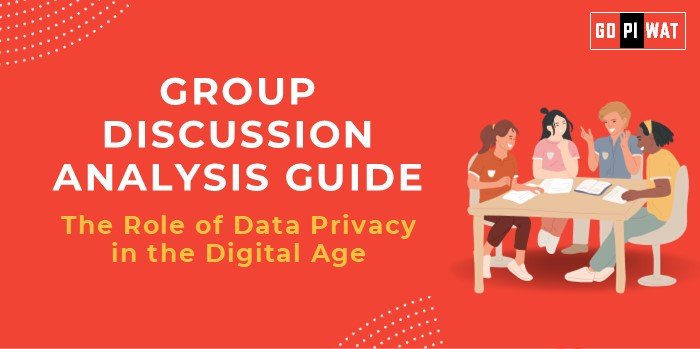📋 The Role of Data Privacy in the Digital Age
🌟 Introduction to Data Privacy in the Digital Age
- 🌐 Opening Context: In today’s interconnected world, data privacy has become a cornerstone of digital interactions. With the exponential growth of internet users and digital services, safeguarding personal information is paramount for individuals, businesses, and governments.
- 📚 Topic Background: The concept of data privacy has evolved alongside technological advancements. High-profile data breaches and the implementation of regulations like the General Data Protection Regulation (GDPR) in the European Union and India’s Digital Personal Data Protection Act, 2023, have underscored the necessity for robust data protection frameworks.
📊 Quick Facts and Key Statistics
- 🔓 Global Data Breaches: In 2023, there were over 4,000 significant data breaches, compromising billions of records.
- 💶 GDPR Penalties: Since its enforcement in 2018, the GDPR has led to fines exceeding €5 billion, highlighting the EU’s commitment to data protection.
- 📈 Digital Growth in India: With over 900 million internet users, India’s digital expansion emphasizes the critical need for stringent data privacy measures.
- 💰 Economic Impact: The global data economy is valued at over $3 trillion, reflecting the immense economic significance of data.
🤝 Stakeholders and Their Roles
- 🏛️ Governments: Enact and enforce data privacy laws to protect citizens’ information.
- 💼 Businesses: Collect, process, and secure user data, ensuring compliance with relevant regulations.
- 🙋 Individuals: Provide personal data and have rights concerning its use and protection.
- 🌍 International Organizations: Develop frameworks and guidelines to harmonize data protection standards globally.
🎯 Achievements and Challenges
🏆 Achievements
- 📜 Regulatory Frameworks: Implementation of comprehensive data protection laws like GDPR and India’s Digital Personal Data Protection Act.
- 🔒 Technological Advancements: Adoption of encryption and anonymization techniques to enhance data security.
- 📢 Increased Awareness: Growing public consciousness about data privacy rights and practices.
⚠️ Challenges
- 🔍 Implementation Gaps: Variations in enforcement and compliance across different regions and sectors.
- 💻 Cybersecurity Threats: Rising incidents of data breaches and cyberattacks targeting personal information.
- ⚖️ Balancing Innovation and Privacy: Ensuring that data privacy measures do not stifle technological innovation and economic growth.
🌍 Global Comparisons
- 🇪🇺 European Union: The GDPR serves as a benchmark for data protection, with stringent enforcement and significant penalties for non-compliance.
- 🇺🇸 United States: Lacks a comprehensive federal data privacy law, leading to a patchwork of state-level regulations.
📖 Case Studies
- 🇮🇳 India’s Digital Personal Data Protection Act, 2023: Aims to provide a robust framework for data protection, balancing individual rights with the needs of the digital economy.
💬 Structured Arguments for Discussion
- 👍 Supporting Stance: “Robust data privacy laws are essential to protect individuals’ personal information and build trust in digital services.”
- 👎 Opposing Stance: “Overly stringent data privacy regulations can hinder innovation and impose significant compliance costs on businesses.”
- ⚖️ Balanced Perspective: “While data privacy is crucial for protecting individuals, regulations should be designed to balance privacy concerns with the need for innovation and economic growth.”
💡 Effective Discussion Approaches
- 📊 Opening Approaches:
- Statistical Impact: “With over 900 million internet users, India’s digital landscape underscores the critical importance of data privacy measures.”
- Contrast Approach: “Despite stringent data privacy laws like the GDPR, data breaches continue to rise globally, highlighting the challenges in enforcement.”
- Case Study Opening: “The 2023 data breach affecting millions of users in [Country/Company] illustrates the ongoing vulnerabilities in data protection frameworks.”
- 🔄 Counter-Argument Handling: Acknowledge valid concerns about the impact of data privacy regulations on innovation, but emphasize the necessity of protecting individuals’ rights and the potential for regulations to drive the development of privacy-enhancing technologies.
📋 Strategic Analysis of Strengths and Weaknesses
✅ Strengths
- 🔐 Enhanced Consumer Trust: Strong data privacy measures build trust between consumers and service providers.
- 📜 Regulatory Compliance: Clear guidelines help businesses navigate data handling practices.
- 🌍 Global Standards: International frameworks promote consistency in data protection.
❌ Weaknesses
- 💰 Compliance Costs: Implementing data privacy measures can be resource-intensive for businesses.
- 🌐 Enforcement Challenges: Difficulties in monitoring and enforcing compliance across borders.
- ⚡ Technological Constraints: Rapid technological advancements can outpace existing regulations.
📈 Opportunities
- 🔒 Innovation in Privacy Technologies: Development of tools that enhance data security and user control.
- 🌍 Global Collaboration: Harmonization of data privacy standards across countries.
- 📢 Consumer Education: Empowering individuals to manage their personal data effectively.
⚠️ Threats
- 🎭 Cybersecurity Risks: Increasing sophistication of cyberattacks targeting personal data.
- ⚖️ Regulatory Divergence: Inconsistent data privacy laws leading to compliance complexities.
- 📉 Economic Impacts: Potential negative effects on businesses due to stringent data privacy requirements.
🎓 Connecting with B-School Applications
- 💼 Real-World Applications: Understanding data privacy is crucial for roles in compliance, risk management, and digital strategy within various industries.
- ❓ Sample Interview Questions:
- “How do data privacy regulations impact business operations and strategy?”
- “Can you discuss a recent data breach and its implications for data privacy policies?”
- “What are the challenges businesses face in complying with international data privacy laws?”
- 📚 Insights for B-School Students:
- Stay informed: Keeping abreast of evolving data privacy regulations and their implications on business operations is essential for future leaders.
- Interdisciplinary Thinking: Data privacy intersects with law, technology, and business. Developing cross-functional skills can give students an edge in managing and leveraging data responsibly.
- Ethical Considerations: Data privacy discussions often extend into ethics, customer trust, and brand reputation, making it critical to understand the human and moral dimensions of data management.


